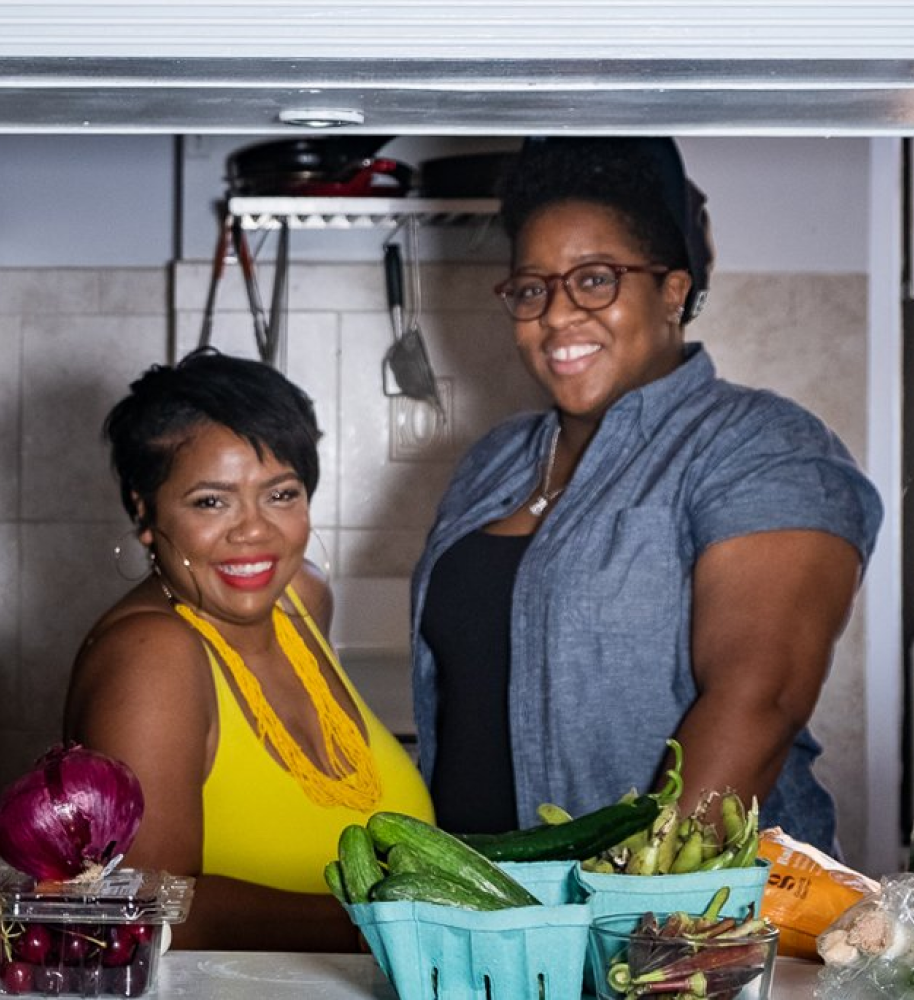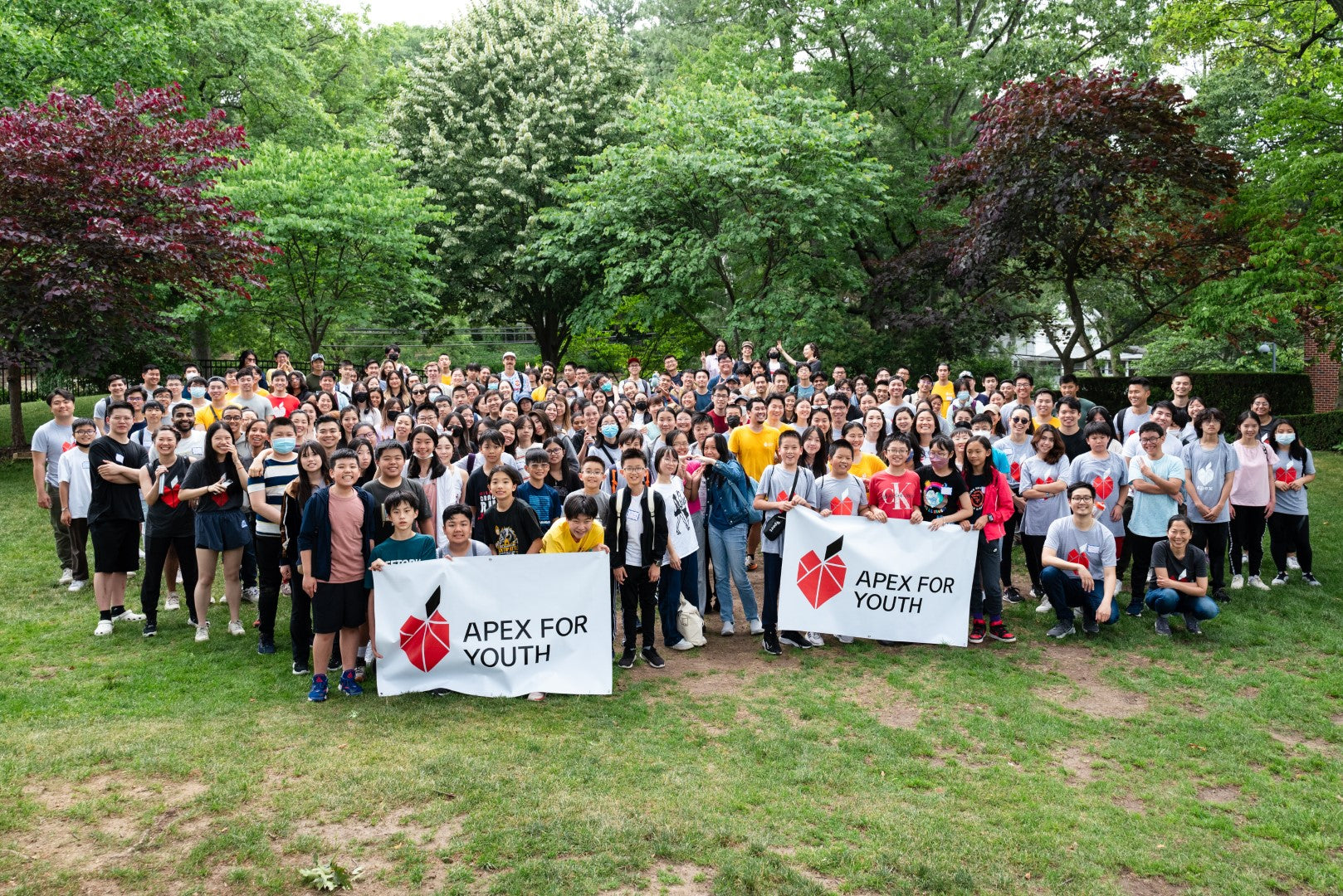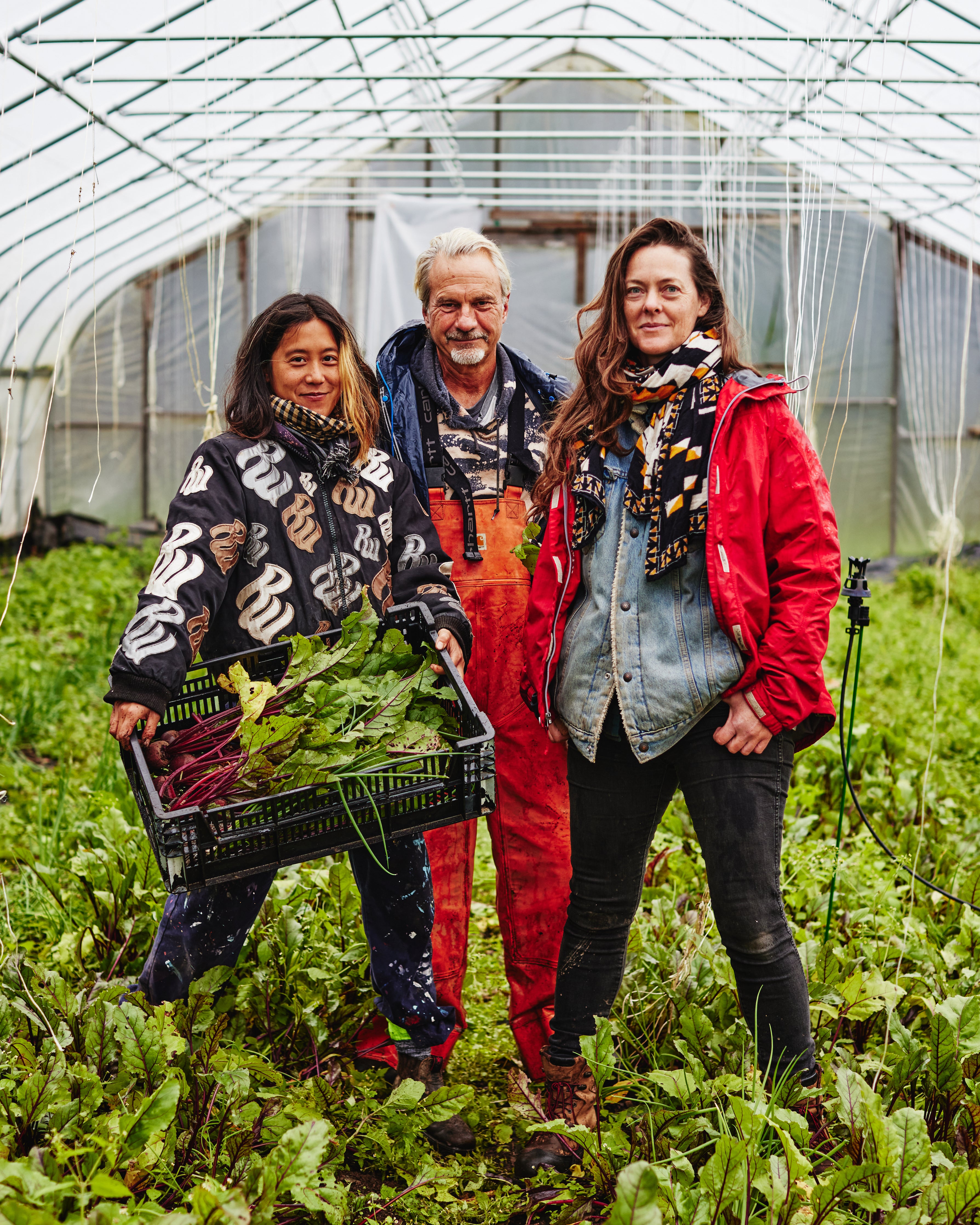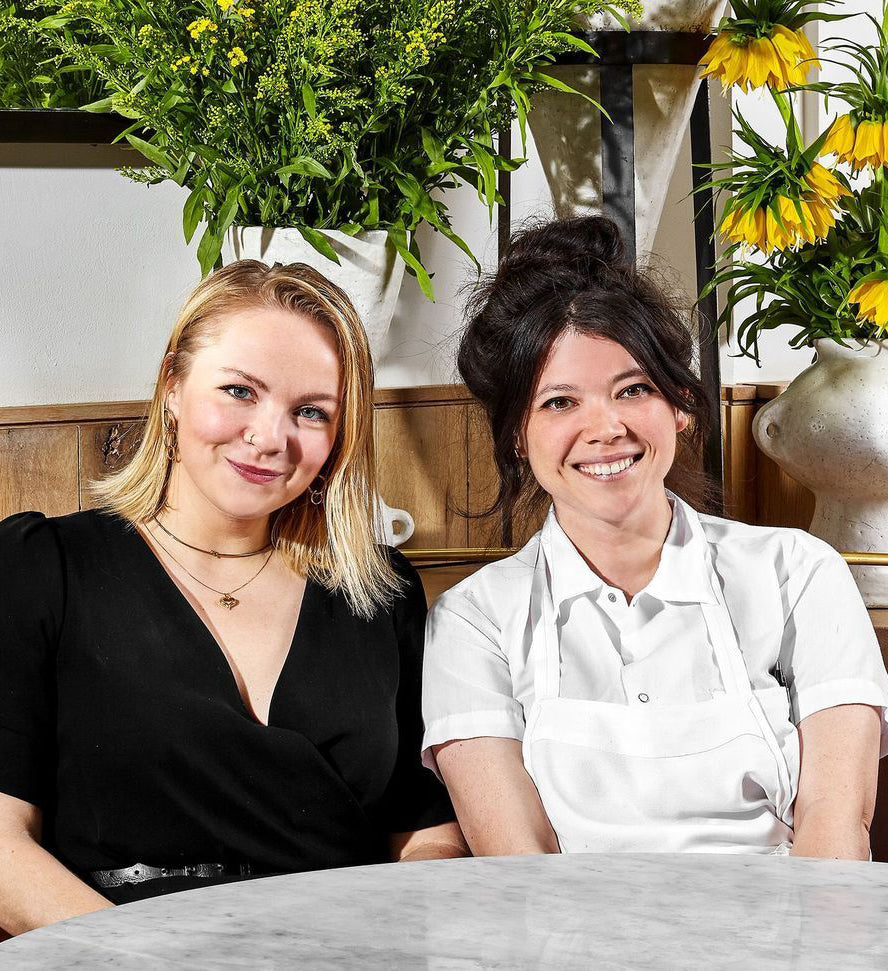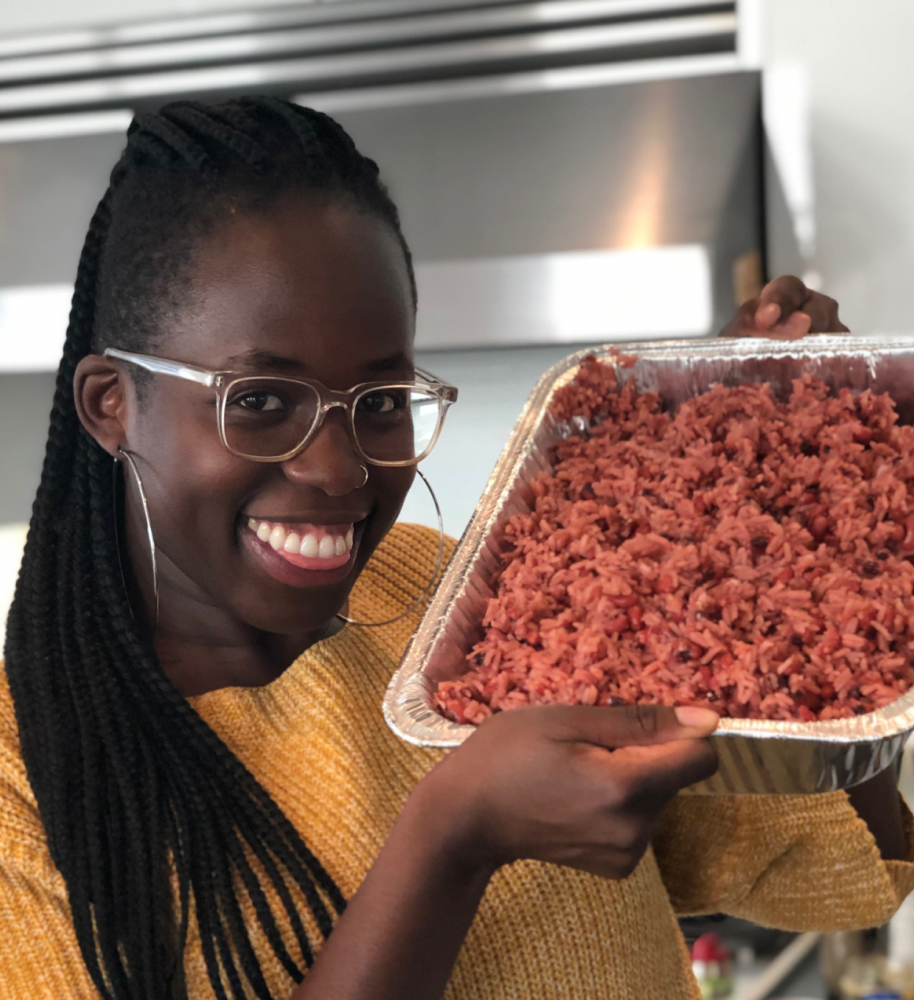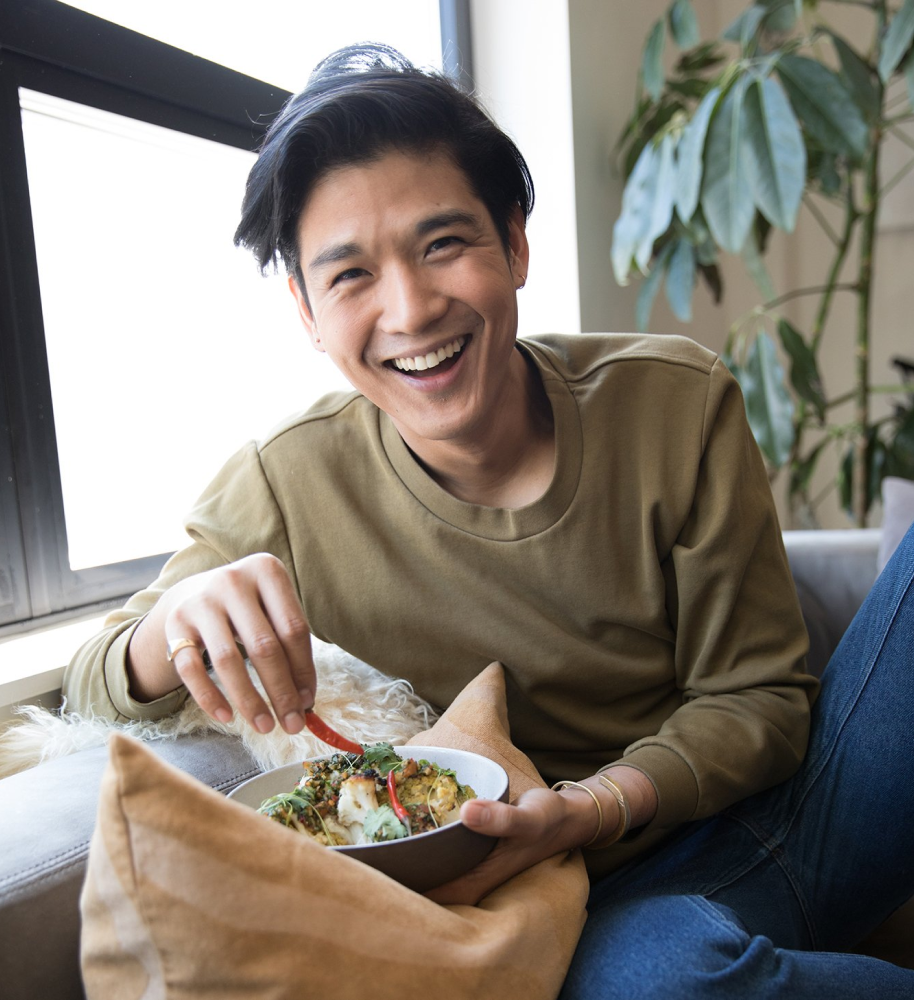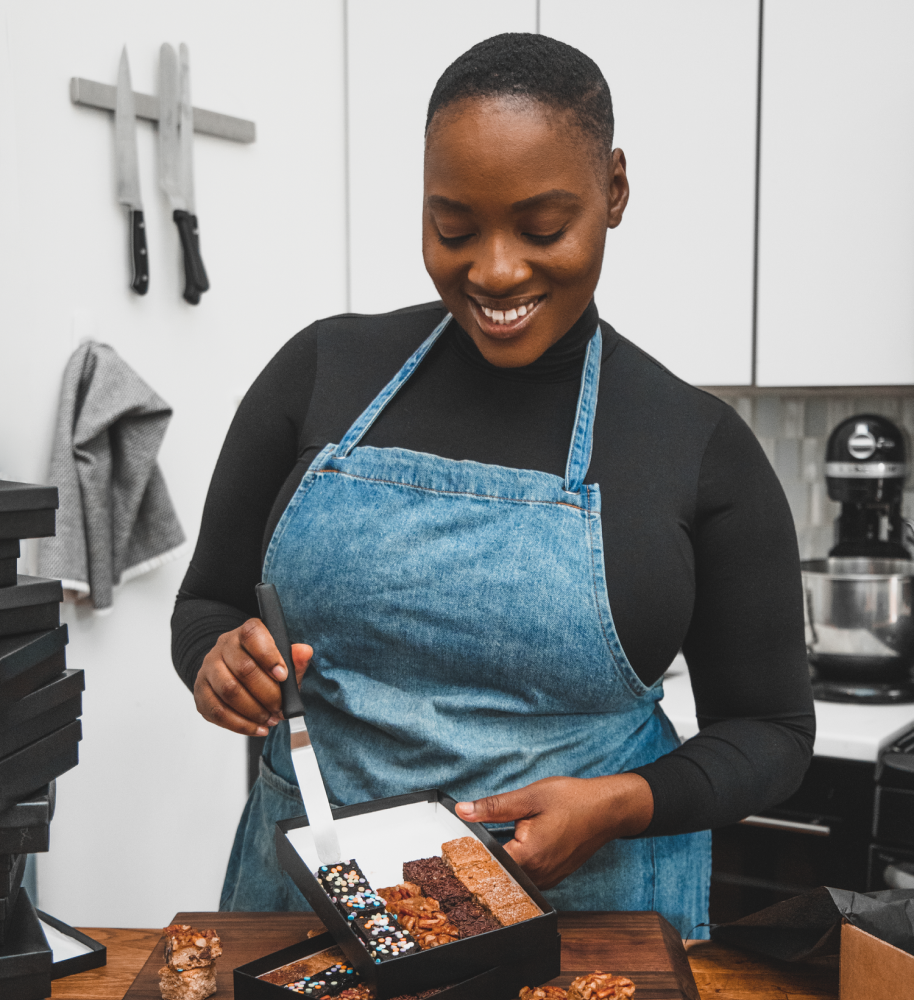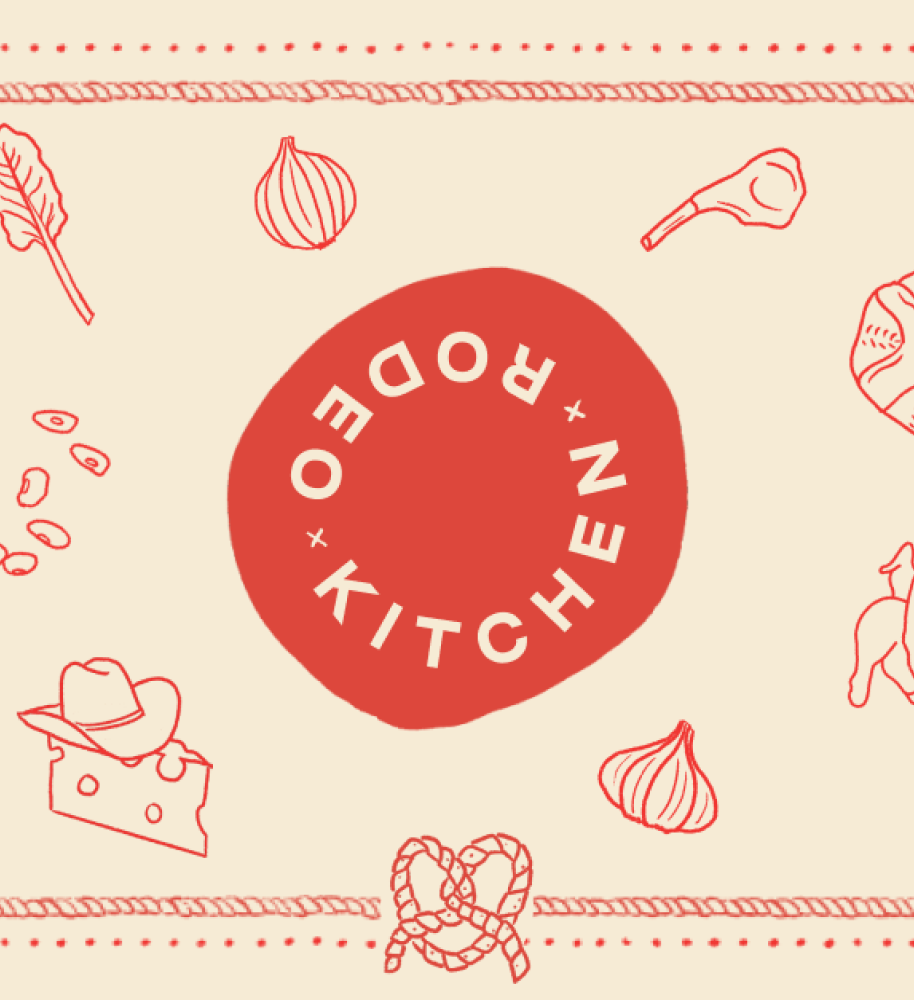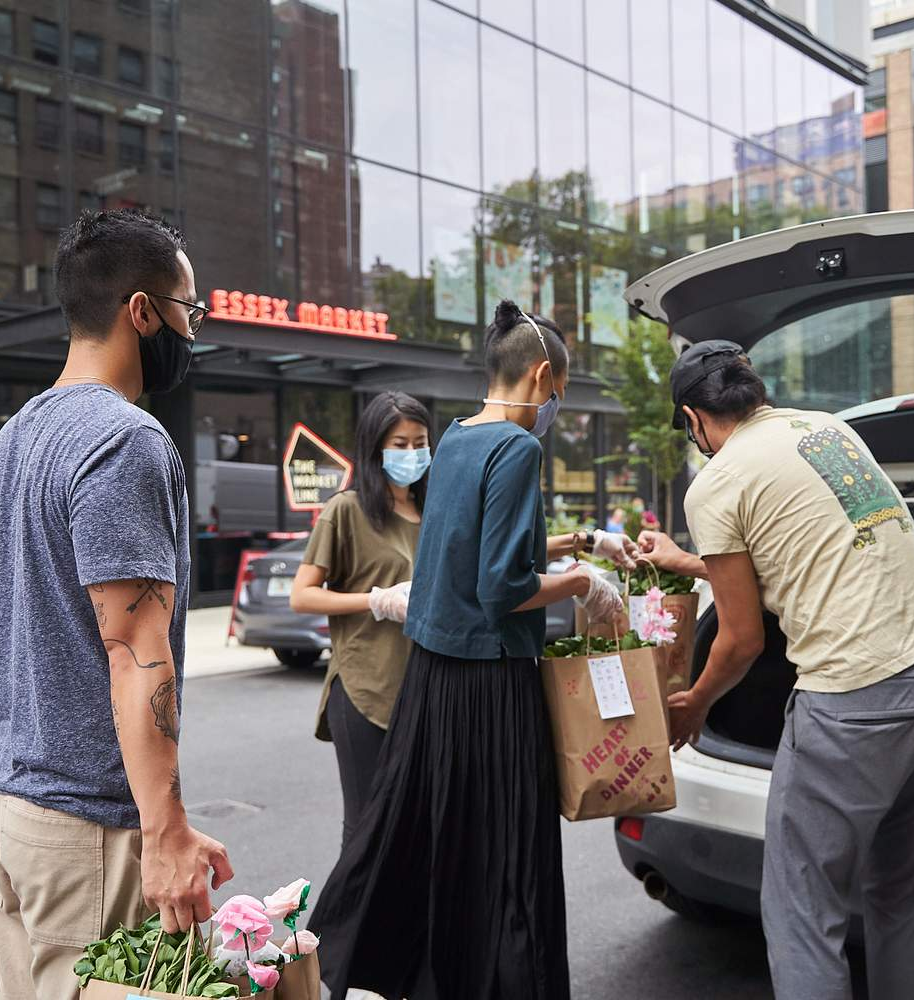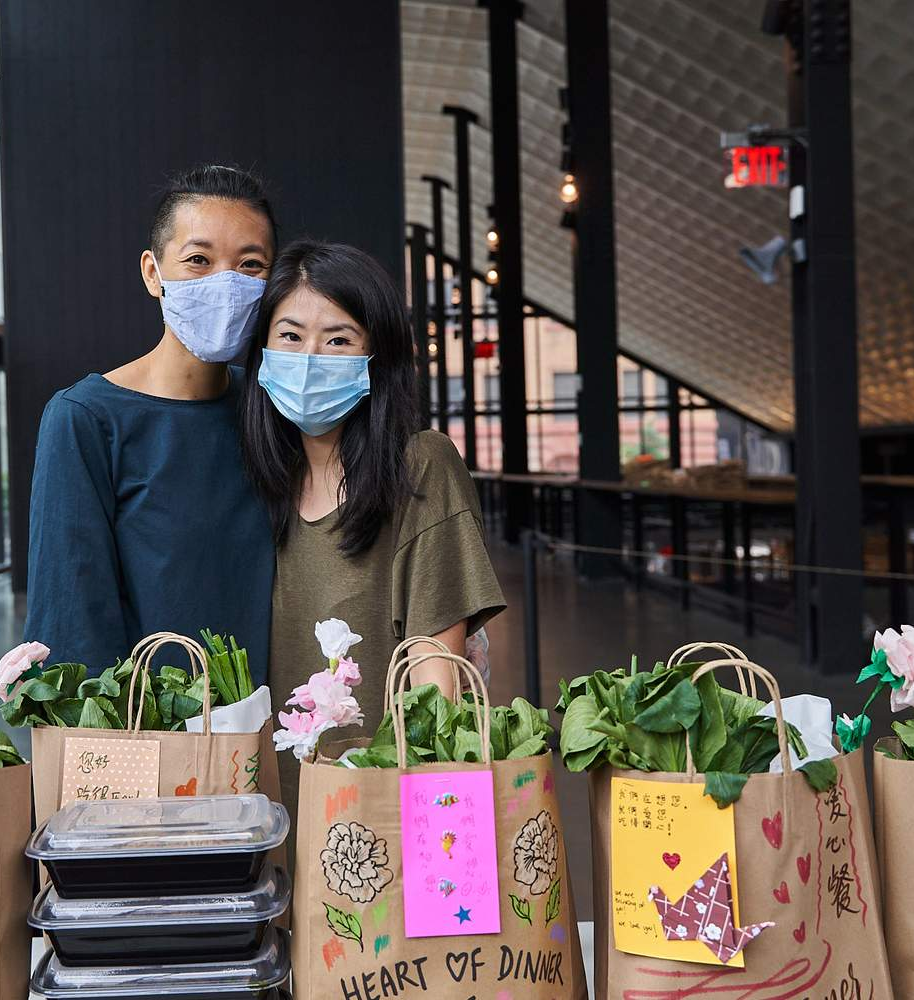For many, community is a noun, a place we live and work, but for chefs Mavis-Jay Sanders and Sicily Sewell Johnson, it’s a verb, animating their work as chefs and advocates in the hospitality industry.
In March, as the Covid crisis shuttered restaurants, many people turned to their kitchens, tackling cooking projects they’d been too busy to take on before, using the act of cooking to re-center and refocus themselves in the midst of a pandemic. But Mavis-Jay and Sicily took the beginning of the pandemic to look around their neighborhood and see the inequity in terms of access to fresh foods. “March was really frustrating, living in a food desert, we ate a lot of rice and beans and didn’t have access to a lot of fresh items,” Mavis-Jay remembers. The premium ingredients that flooded their social media timelines were not available to them or to their neighbors despite living only a few miles away from Manhattan in the Bronx.
But where there’s community, there are solutions. Their neighbors in the Bronx began coming together to place joint orders for fresh fruits, vegetables and grocery items. For Sicily, it reminded her of how Black communities have always had to rely on one another in times of need and the ways they as chefs could use their gifts to support their community. “I think that’s the way it’s always been especially as Black people,” she says pointing to the work of organizations like the Black Panther Party, which offered free breakfasts to school children and grocery items for neighbors. “Black people in this country have always had to support one another to get what we need.”
That ethos of supporting one another also extends to Mavis-Jay’s work as director of culinary development and education for Drive Change, a non-profit that uses culinary arts to positively impact the lives of formerly incarcerated young people who live in New York City.


“We have ten fellows that we’re in constant communication with, that lost their restaurant jobs due to Covid,” she says. Through the program, the fellows learn cooking techniques that they can use to build careers in hospitality. Drive Change also provides the program participants with grocery items and virtual class meetings where they can discuss what they’re learning. Aside from teaching the fellows how to cook, it’s about using food to empower this group of young people, Mavis-Jay says. She’s in constant communication with the fellows and hopes to teach the fellows to fall in love with cooking, which has become a respite for so many in these times. “It’s a huge relief when the world is falling apart, when there’s something you can do like cooking with the fellows,” she says. “You can still connect with people.”
Helping people fall in love with the act of cooking and eating, while also acknowledging the access and privilege that can accompany those things, is at the core of many aspects of Mavis-Jay and Sicily’s work.
Together, they are also the co-founders of Food + People, a line of pantry items founded with the mission that everyone deserves access to good food. The line was launched this year and includes three hot sauces, two flour mixes, two spice blends and a newly launched pancake mix created based on dishes they remember from childhood, modified to work for home cooks. “With each product we asked, ‘How do we make this as simple as possible for people’,” Sicily says. “If you don’t have measuring cups, how do we make our products well-rounded so you only have to add water or a protein or a vegetable?” “Seeing home cooks at all access and privilege levels and trying to mitigate challenges that may come up for them in their kitchens is how we make sure we’re not leaving anyone behind,” Mavis-Jay says. “It’s a guiding sense of how we work with Food + People, the community that we’re feeding and who we want to work with to feed that community,” she adds.

Creating kinder kitchens means being a better community member and employing a sense of empathy, not charity, to create change in how people eat and take care of one another. And it doesn’t mean just doing it once, Sicily says. “There’s a push to ‘Buy Black’ and that’s great but it shouldn’t just happen once, it needs to be normalized,” she says. “You can make your kitchen kinder by making your shopping more diverse at all times.” And don’t forget the other side of the products that you use to stock your kitchens, Mavis-Jay says. “Just as people have made it a priority to be part of a CSA or visit their nearest farmer’s market, look for your nearest Black-owned farm and if you don’t know, that should be a question you ask yourself and look into.” Your kitchen and the act of cooking will feel so much more meaningful and kinder. “You fall in love with food so much more when you know the story behind it,” she says.


